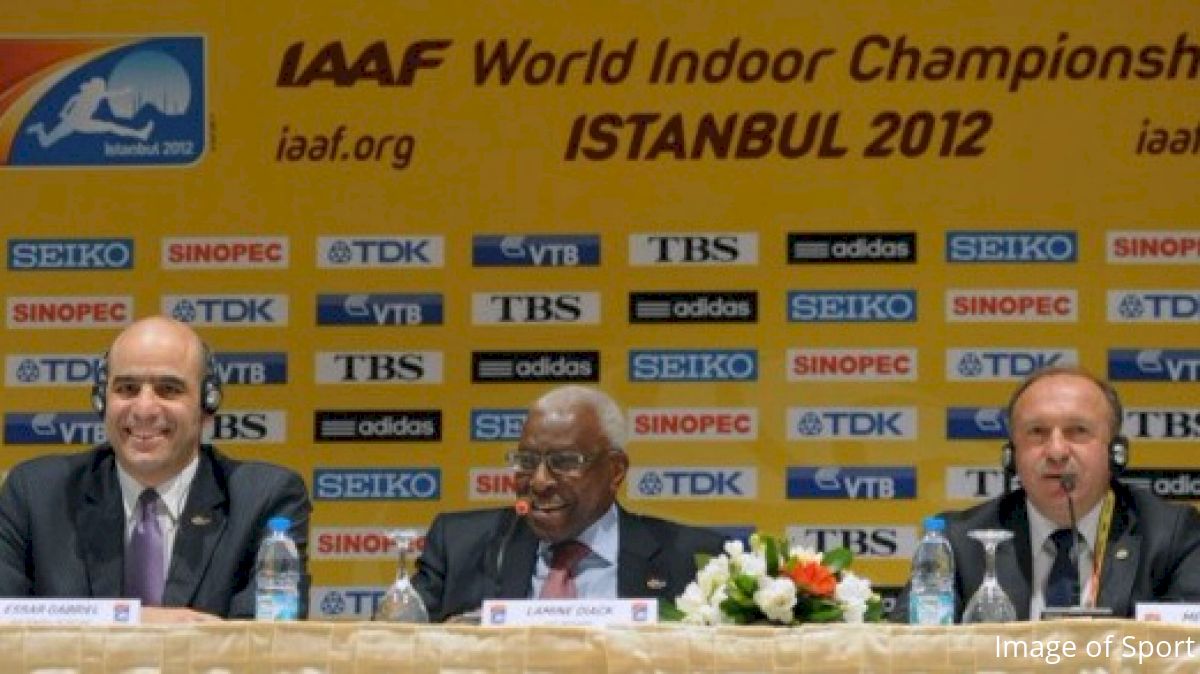Lamine Diack Confesses to Russian Political Donation
Lamine Diack Confesses to Russian Political Donation
The investigation into former IAAF President Lamine Diack took a new turn as Diack confessed to asking Russia for more than $1 million to fund the political

The investigation into former IAAF President Lamine Diack took a new turn as Diack confessed to asking Russia for more than $1 million to fund the political opposition in his native Senegal.
According to French newspaper Le Monde, Diack confessed that he asked for the donation from then Russian track federation president Valentin Balakhnichev in 2011. Diack told French authorities that the request was made in order to finance the Senegalese political opposition against then-president Abdoulaye Wade.
“I told him that to win the elections, I needed about 1.5 million euros,” Diack said, according to Le Monde. “He said to me, ‘We’ll try to find it, no problem.”
When contacted by Le Monde, Balakhnichev denied having the conversation with Diack.
“Neither I nor my federation was implicated in such a discussion or affair with Mr. Diack. This type of business is not in our interest or within our power. We cannot interfere in the internal affairs of Senegal,” Balakhnichev told Le Monde.
The confession from Diack is part of an ongoing investigation that began in November when the former IAAF president was arrested by French authorities on charges of corruption and money-laundering. He was released on bail two days later, but remains the subject of question on the international governing bodyÂ’s ethics.
At the time of the arrest on Nov. 2, Diack along with several other IAAF officials were suspected of accepting bribes from the Russian federation to allow at least six Russian athletes to continue competing. Some of those athletes were allowed to compete at the 2012 London Olympics.
In the weeks following, the IAAF provisionally suspended Russia from international competition following an investigative report published by the World Anti-Doping Agency. The report revealed evidence of state-sponsored, systematic doping practices in the Russian track federation.
Russia could potentially be banned from the Rio Olympics if the federation does not “fulfill a list of criteria” that the IAAF determined for an inspection process.
According to French newspaper Le Monde, Diack confessed that he asked for the donation from then Russian track federation president Valentin Balakhnichev in 2011. Diack told French authorities that the request was made in order to finance the Senegalese political opposition against then-president Abdoulaye Wade.
“I told him that to win the elections, I needed about 1.5 million euros,” Diack said, according to Le Monde. “He said to me, ‘We’ll try to find it, no problem.”
When contacted by Le Monde, Balakhnichev denied having the conversation with Diack.
“Neither I nor my federation was implicated in such a discussion or affair with Mr. Diack. This type of business is not in our interest or within our power. We cannot interfere in the internal affairs of Senegal,” Balakhnichev told Le Monde.
The confession from Diack is part of an ongoing investigation that began in November when the former IAAF president was arrested by French authorities on charges of corruption and money-laundering. He was released on bail two days later, but remains the subject of question on the international governing bodyÂ’s ethics.
At the time of the arrest on Nov. 2, Diack along with several other IAAF officials were suspected of accepting bribes from the Russian federation to allow at least six Russian athletes to continue competing. Some of those athletes were allowed to compete at the 2012 London Olympics.
In the weeks following, the IAAF provisionally suspended Russia from international competition following an investigative report published by the World Anti-Doping Agency. The report revealed evidence of state-sponsored, systematic doping practices in the Russian track federation.
Russia could potentially be banned from the Rio Olympics if the federation does not “fulfill a list of criteria” that the IAAF determined for an inspection process.